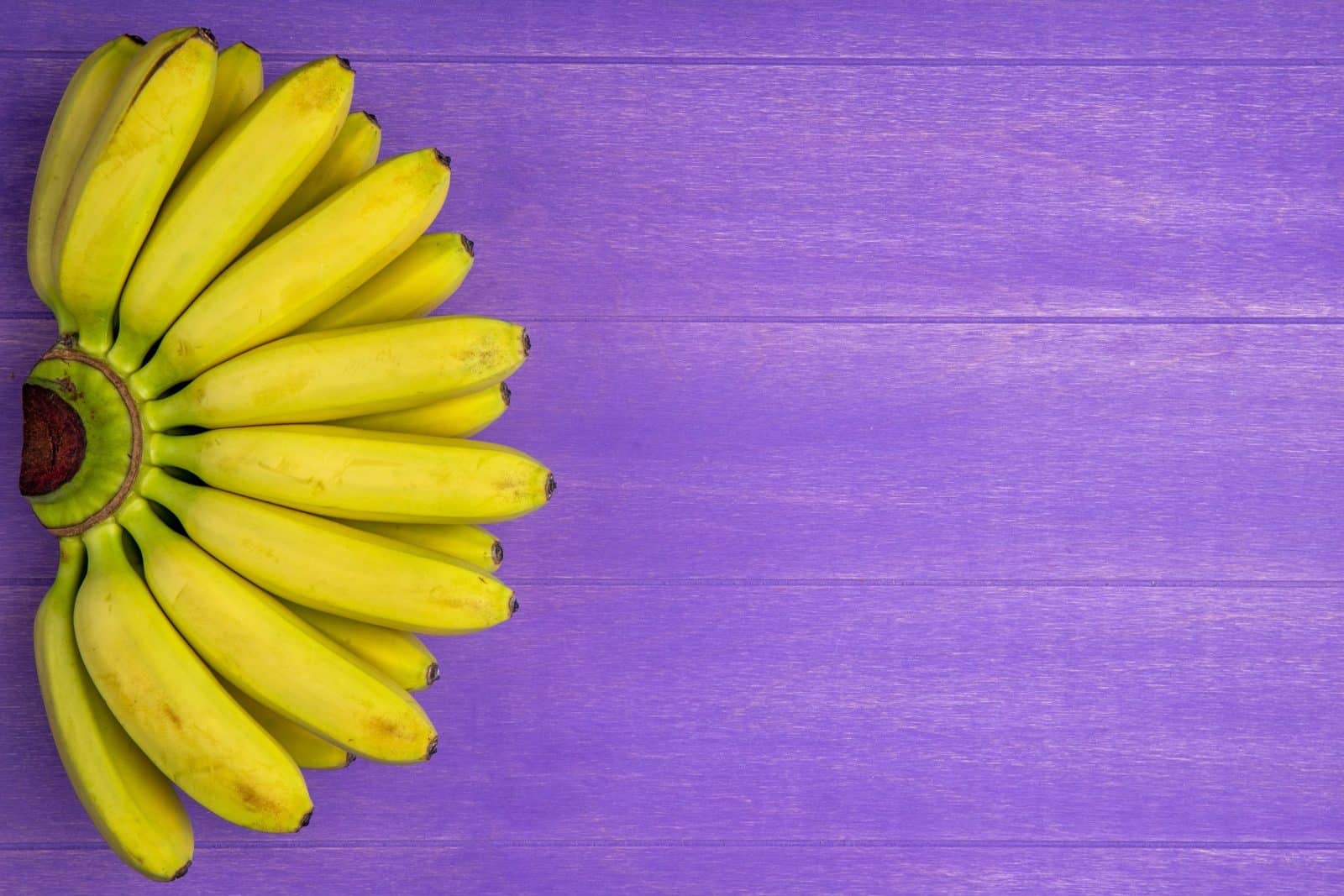Are bananas high in histamine? If you have histamine intolerance, what you eat matters. Histamine intolerance is a condition where your body can’t efficiently metabolize histamine, an organic molecule normally found in foods, as well as people without histamine sensitivity or intolerance. This is usually due to low levels of diamine oxidase (DAO), the main enzyme that breaks down histamine. (6)
What does this mean for your health? If you have histamine intolerance and eat foods high in histamine or foods that trigger histamine release, it can trigger various symptoms that may affect various organ systems and differ from person to person.
These symptoms can be quite diverse, and include a runny nose, headaches, digestive disturbances, headache, a drop in blood pressure, or hives. (7)
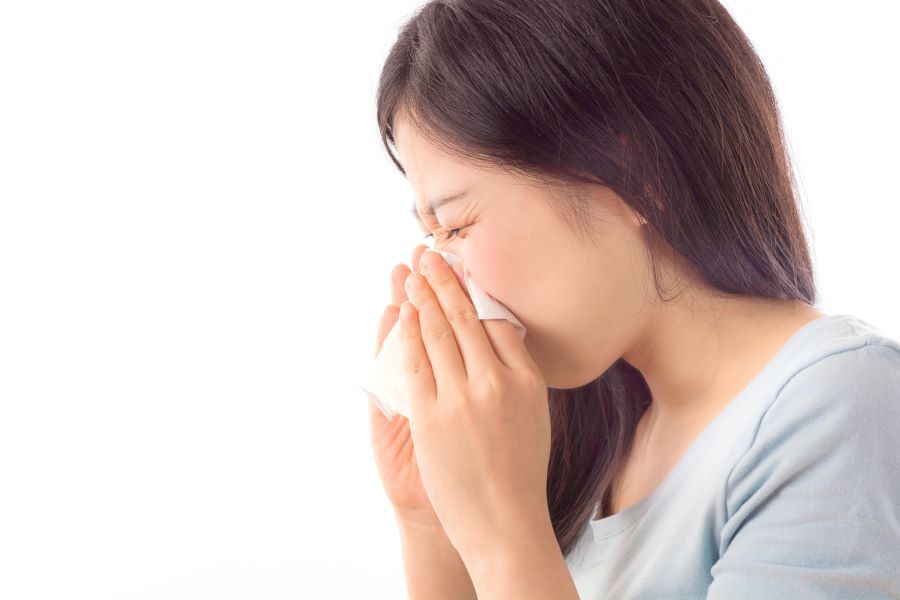
While the symptoms of histamine intolerance are similar to an allergy, histamine intolerance, or histamine sensitivity, isn’t an allergy, but rather a defect in your body’s ability to break down histamine. So, histamine stays in your system longer and causes histamine intolerance symptoms.
Fortunately, dietary changes that reduce your body’s histamine burden can reduce or even eliminate your symptoms. This doesn’t mean you’re cured, since you still have an impaired ability to metabolize histamine, but you can control your symptoms.
Some foods are high in histamine or cause histamine release. If you can’t effectively break down histamine, your histamine burden rises, and you experience symptoms. Sounds familiar, right?
Bananas and Histamine Intolerance: Are They Safe?
If you enjoy munching on a banana as a snack, is it likely to worsen your histamine intolerance symptoms? The banana is one of the most popular fruits, and they have some health benefits. They’re an excellent source of complex carbohydrates, a type of complex sugar that provides long-lasting energy to the body.
Plus, bananas are a good source of other nutrients, including vitamin B6, vitamin C, manganese, dietary fiber, and potassium, a mineral important for fluid balance, heart health, and blood pressure control. (8)
Bananas are also a good source of tryptophan, which helps produce serotonin in the brain.
However, bananas might not directly cause the mood boost you expect from a serotonin-rich food, since it doesn’t cross the blood-brain barrier. (1) Yet bananas contain important nutrients, including vitamin B6, a nutrient your body needs to make serotonin in the brain.

Do Bananas Cause Histamine Release?
Although bananas contain more natural sugar than some other fruits, such as berries, they’re still an excellent after-workout snack since they replenish carbohydrates your body used during exercise and contain electrolytes, like potassium.
Research even shows that a banana and water is a worthy substitute for a sports drink due to their potassium and carbohydrate content. Plus, they helped reduce oxidative stress and inflammation in cyclists. (2)
But what about histamine? Although bananas don’t contain preformed histamine, but they may be histamine liberators, meaning they can trigger histamine-producing cells to release histamine.
Although the exact way so-called histamine liberators cause histamine release is poorly understood, it’s supported by the reactions some people with histamine intolerance have when they eat bananas.
Foods that are histamine liberators can cause some of the same problems as eating foods high in histamine since they increase your body’s histamine burden.
Bananas aren’t the only food that’s a histamine liberator. Other foods and even some medications can too. That’s why you should consider not only whether a food contains histamine, but also whether it could trigger histamine release. Bananas fall into this category.
Citrus foods are also known to be histamine liberators; they trigger the release of histamine from histamine-producing cells, like mast cells and basophils.
Be aware that the idea of a histamine liberator is only weakly supported by science. Foods are deemed histamine liberators when people experience symptoms after eating them.
Most of this information comes from surveys of how people respond to certain foods, rather than scientific research.
Still, when you start to see patterns of people experiencing worsening histamine intolerance symptoms in response to eating bananas, it merits caution. We know that bananas aren’t high in histamine naturally, yet they can still trigger symptoms in some.
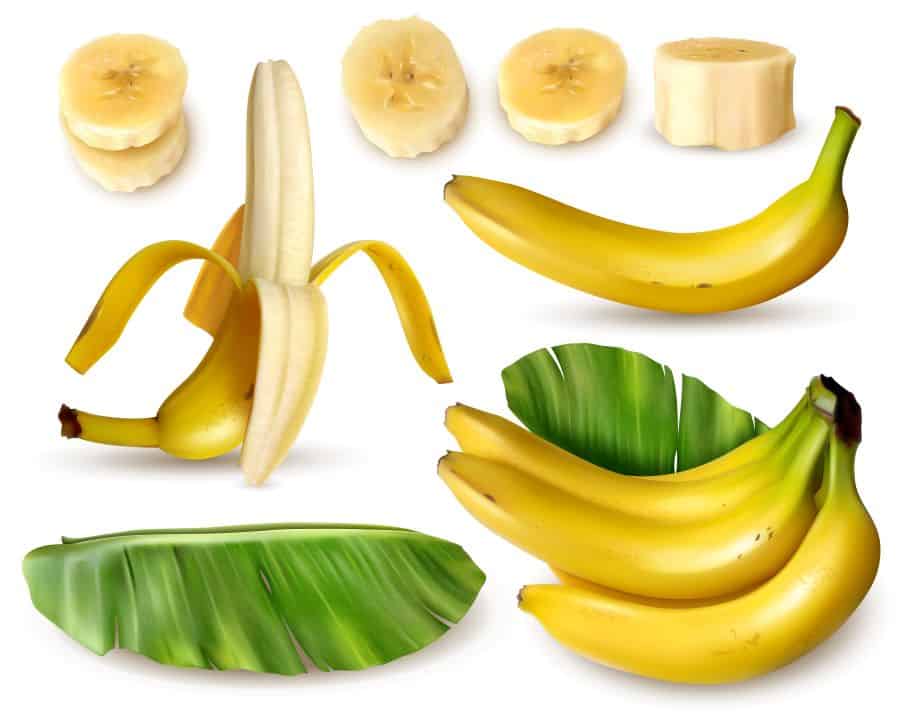
Are Unripe Bananas High in Histamine?
You’ve probably bitten into a few very ripe bananas in your lifetime, even some with brown spots. You may also have munched on a very unripe banana. People have their preferences.
Unripe or green bananas have less impact on blood sugar because they contain more resistant starch, fiber-like carbohydrates that you don’t digest, but your gut bacteria do. (4)
Resistant starch is healthy for the lining of your colon. When gut bacteria munch on resistant starch, they produce short-chain fatty acids, like butyric acid, that have an anti-inflammatory effect on the lining of the colon.
Ripe bananas are more likely to be problematic from a histamine standpoint since they’ve had more time to ripen. As you’ve probably discovered, the riper and less fresh food is, the more likely it is to contain histamine or increase your body’s histamine burden.
So, ripe bananas would be more likely to worsen histamine intolerance symptoms than unripe or green ones.
Freshness is important if you suffer from histamine intolerance. One rule of thumb is to eat only fresh food. Some people enjoy eating leftovers, but it’s not a smart practice if you’re sensitive to histamine, since the histamine content of foods increases when they sit around.
Aged or fermented foods, like wine, cheese, fermented vegetables, fermented dairy, and cured meat top the list of foods to avoid, since they are often histamine-producing factories. (5) Find out whether grapes are low histamine.
Also, the amount of histamine in foods can be highly variable based on how ripe or mature it is, how long it was stored, and the degree of processing it undergoes.
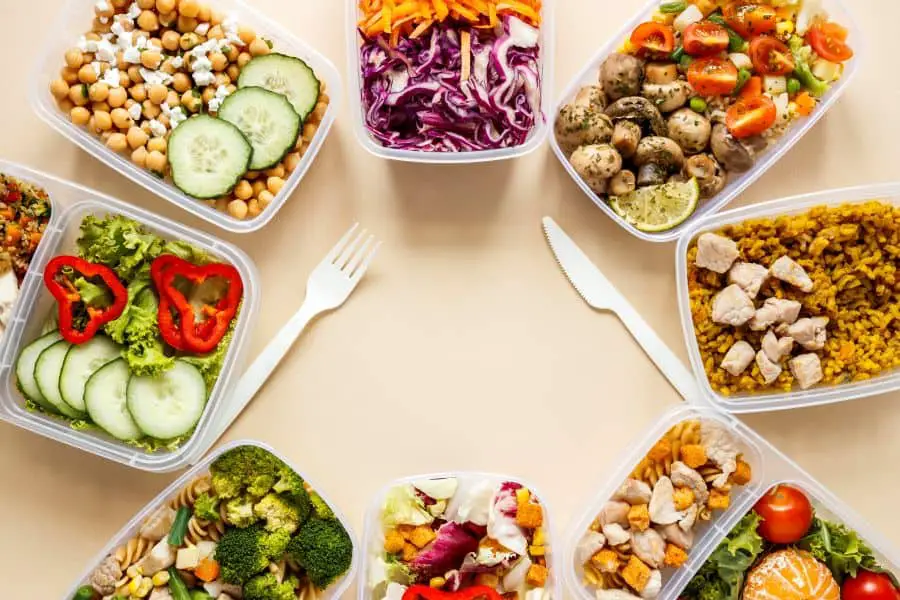
Do Bananas Trigger Histamine Release?
It would be incorrect to make broad statements, like bananas are always a problem if you have histamine intolerance. It’s hard to judge one food in isolation, since it’s the totality of your diet that matters most.
If you eat a single banana in the setting of a day’s worth of low-histamine foods, it’s unlikely to boost your body’s histamine burden enough to trigger histamine intolerance symptoms unless you’ve been eating other histamine-rich foods or foods that are histamine liberators.
Plus, people with histamine intolerance have different quantities of diamine oxidase and varying abilities to break down histamine. Eating a few bananas could cause problems, depending on the other foods you ate that day.
But for most people, eating a banana, eating a single banana in the setting of a low-histamine diet probably won’t worsen histamine intolerance symptoms. What’s important is getting the balance of your diet right.
When you develop histamine intolerance symptoms, it’s because your histamine level rose for hours or days and finally reached a crucial level where you overwhelmed your diamine oxidase supply and can’t break all of your histamine down.
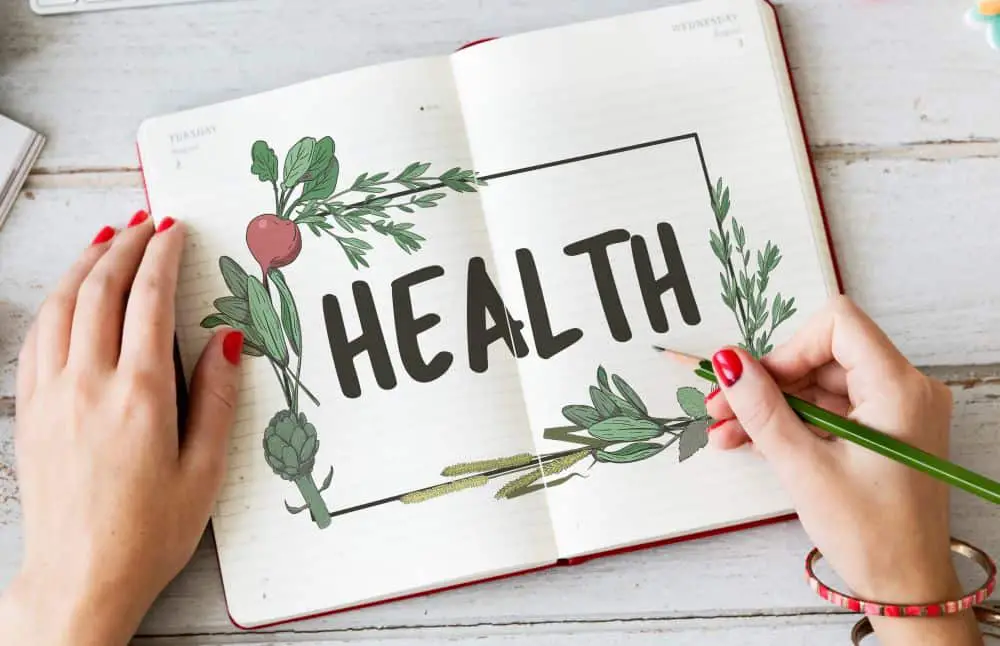
So, keep a food and symptom journal, so you know exactly what you’re eating each day. Over time, you’ll notice patterns that when you eat certain foods, they trigger symptoms. Also, avoid foods on the high-histamine list that trigger symptoms in most people, and try to choose the freshest food choices you can.
Are Bananas Bad for Histamine Intolerance?
Are bananas high in histamine? They may be histamine liberators, so approach them with caution. Also, don’t eat ripe bananas and don’t consume more than occasionally if they worsen your histamine intolerance symptoms. Be aware that there are other types of high histamine fruit you should avoid too.
If you do eat bananas, do so in moderation and balance it out with lower histamine foods and antihistamine foods that help counter the negative effects of histamine release related to bananas. Choose unripe bananas over ripe ones to further reduce your body’s histamine load.
Frequently Asked Questions about Bananas and Histamine Intolerance
Are bananas a low histamine food?
Bananas are not naturally high in histamine, but they may trigger the release of histamine from immune cells.
Are unripe bananas safer than ripe ones for histamine intolerance?
Unripe or green bananas are less likely to worsen histamine intolerance symptoms.
Do bananas trigger histamine intolerance symptoms?
It depends on the balance of your diet. Introduce bananas into your diet in small quantities and balance it out with low-histamine foods.
References:
- Young SN. How to increase serotonin in the human brain without drugs. J Psychiatry Neurosci. 2007;32(6):394–399. PMID:18043762.
- Bananas as an Energy Source during Exercise: A Metabolomics Approach. David C. Nieman ,Nicholas D. Gillitt,Dru A. Henson,Wei Sha,R. Andrew Shanely,Amy M. Knab,Lynn Cialdella-Kam,Fuxia Jin. Published: May 17, 2012. https://doi.org/10.1371/journal.pone.0037479.
- Reese I, Ballmer-Weber B, Beyer K, Fuchs T, Kleine-Tebbe J, Klimek L, Lepp U, Niggemann B, Saloga J, Schäfer C, Werfel T, Zuberbier T, Worm M. German guideline for the management of adverse reactions to ingested histamine: Guideline of the German Society for Allergology and Clinical Immunology (DGAKI), the German Society for Pediatric Allergology and Environmental Medicine (GPA), the German Association of Allergologists (AeDA), and the Swiss Society for Allergology and Immunology (SGAI). Allergo J Int. 2017;26(2):72-79. doi: 10.1007/s40629-017-0011-5. Epub 2017 Feb 27. PMID: 28344921; PMCID: PMC5346110. https://www.ncbi.nlm.nih.gov/pmc/articles/PMC5346110/
- “Bananas | The Nutrition Source | Harvard T.H. Chan School ….” https://www.hsph.harvard.edu/nutritionsource/food-features/bananas/.
- The American Journal of Clinical Nutrition, Volume 85, Issue 5, May 2007, Pages 1185–1196, https://doi.org/10.1093/ajcn/85.5.1185.
- Izquierdo-Casas J, Comas-Basté O, Latorre-Moratalla ML, Lorente-Gascón M, Duelo A, Vidal-Carou MC, Soler-Singla L. Low serum diamine oxidase (DAO) activity levels in patients with migraine. J Physiol Biochem. 2018 Feb;74(1):93-99. doi: 10.1007/s13105-017-0571-3. Epub 2017 Jun 17. PMID: 28624934.
- “Histamine Intolerance: Causes, Symptoms, and Diagnosis.” 13 Aug. 2018, https://www.healthline.com/health/histamine-intolerance.
- “Bananas, raw nutrition facts and analysis..” https://www.nutritionvalue.org/Bananas%2C_raw_nutritional_value.html.

